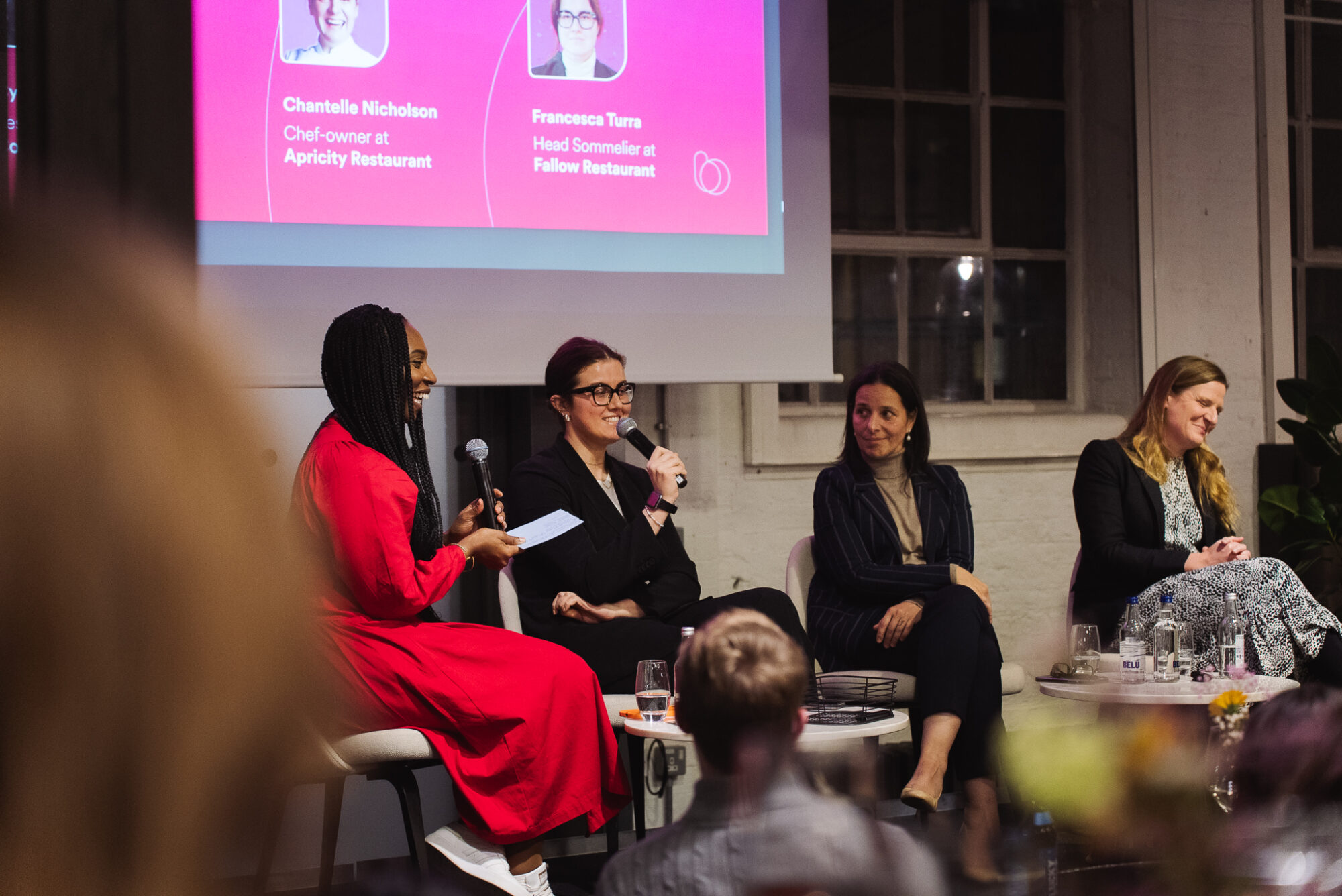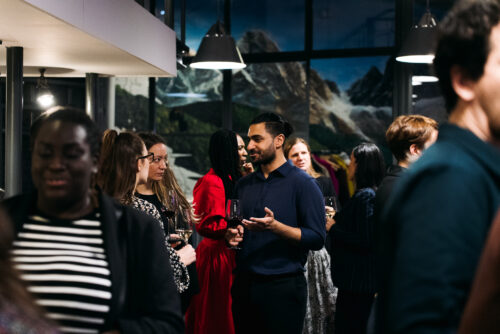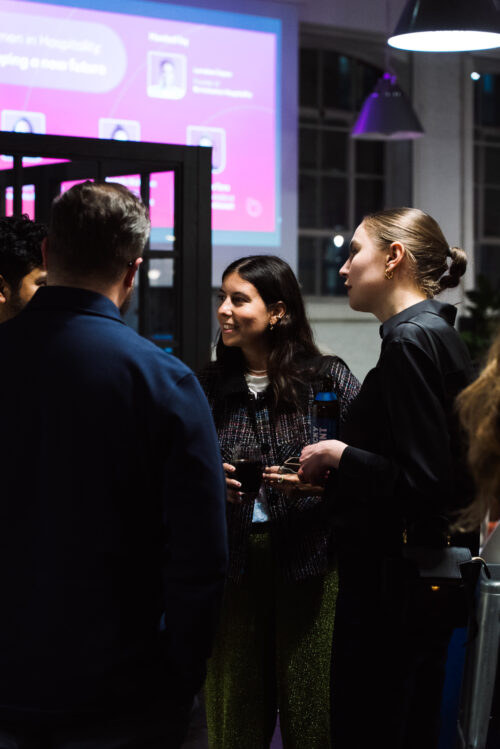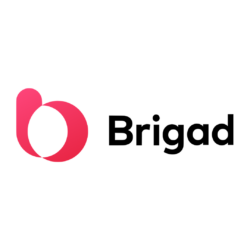To celebrate International Women’s Day, hospitality freelancing platform, Brigad, held a successful Women in Hospitality panel and networking event in London, creating a platform to share the experience of women in the industry today, as well as bringing to light key takeaways.
The panel was hosted by Lorraine Copes, founder of Be Inclusive Hospitality, and consisted of Cynthia Coomb, Restaurant Director at Corinthia Hotel, Chantelle Nicholson, Chef-Owner of Apricity Restaurant, and Francesca Turra, Head Sommelier at Fallow Restaurant

Mentors instil confidence and help build careers
Having a mentor is a great way for any new starter to find guidance, learn and develop confidence, as well as foster personal connections – crucial in creating pathways to success.
There are thousands of women already in the industry who have worked tirelessly to get to where they are, and it is these women who would make great mentors, offering industry and career guidance.
If you cannot find a mentor in your workplace, then do not be afraid to reach out to established people in the industry whom you admire and ask them for advice. Do your research, find someone you admire, and reach out online – especially on LinkedIn!
Don’t be afraid to speak up
Women in the industry are often unfairly and repeatedly denied promotions, remaining in assistant and other secondary roles for many years despite having a wealth of knowledge and experience.
The panel also shared how they had been repeatedly told, as women with years of experience in the industry, that they were seen as too “emotional”, and “bossy”, and even chastised for being too opinionated.
This kind of experience is shared among the panel, and the result is a lack of confidence and self-doubt, which is difficult to come back from. The advice to combat this is to develop resilience and confidence, but to speak up and trust your gut; ask for what you are entitled to.
Allyship is paramount

Allyship can also mean simply listening, offering encouragement, and acknowledging the experiences of your female colleagues. Let your colleague know that you see, understand, and that she is not alone.
Allyship from male colleagues is vital; without a collaboration with men, it would be nearly impossible to make the industry more equal.
To best support their female colleagues, men should make the effort to truly listen. Many women will shy away from becoming vocal due to bad past experiences or a lack of women in senior roles who can offer support. When women in your team raise concerns, listen carefully so that, in the very least, your response is directly related to what they are saying.
Speaking out against inequality in the workplace is also a form of allyship. Male colleagues should also raise concerns if they see or hear something in the workplace which goes against equality and inclusion. However, be sure to note the difference between speaking out against the issue and speaking for the women in the team.
The future of hospitality

When asked about the future of hospitality, the industry panel was clear in prioritising equal pay and getting more women into senior positions as being a major step towards equality in the workplace.
Diversity and Inclusion should also not be considered a ‘box ticking’ exercise, or an attempt to get underrepresented people in the same room as the current leaders. Efforts to make the industry more equal should be thorough and candidates should be valued for their skills and what they bring to the table. And, once these people are in the room, they need to be listened to and included in the conversation.
The media also has a huge role to play here; choosing to celebrate and feature a greater variety of players in the industry, especially women, is critical. Young women looking to make a career in hospitality should be able to look at the faces of the leaders of the industry and feel represented.
Moving forwards
Copes noted the parallels she saw between the growth of sustainability in the industry when compared to equality, diversity and inclusivity.
She recalled that 15 years ago sustainability only occasionally was brought up in conversation, and many large hospitality businesses refused to get on board with making major environmentally conscious changes because these changes required extensive thought, effort and time.
Fast forward to today and sustainability is in nearly every conversation within the hospitality industry. The culture and the conversation have shifted, and we can hope that we can shift it again towards equality, inclusivity and diversity.




